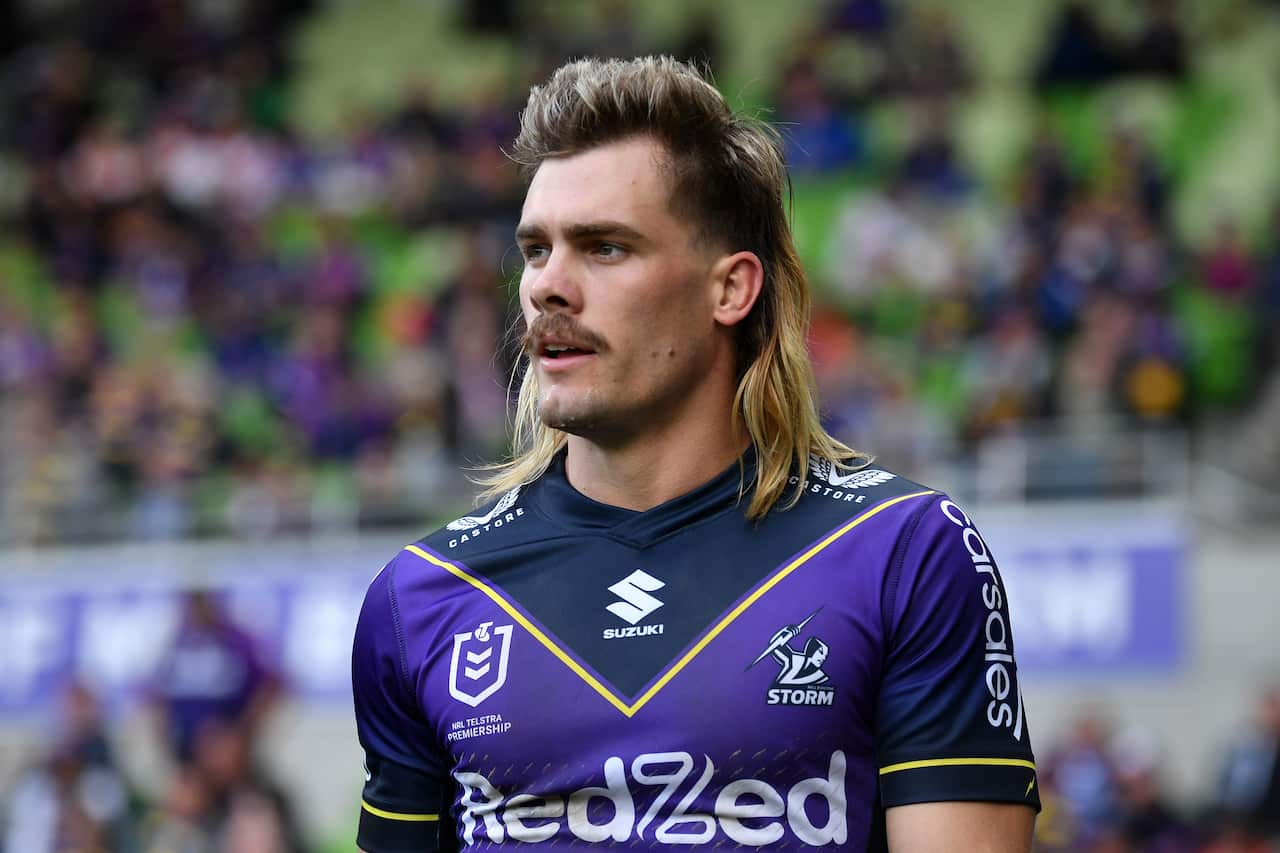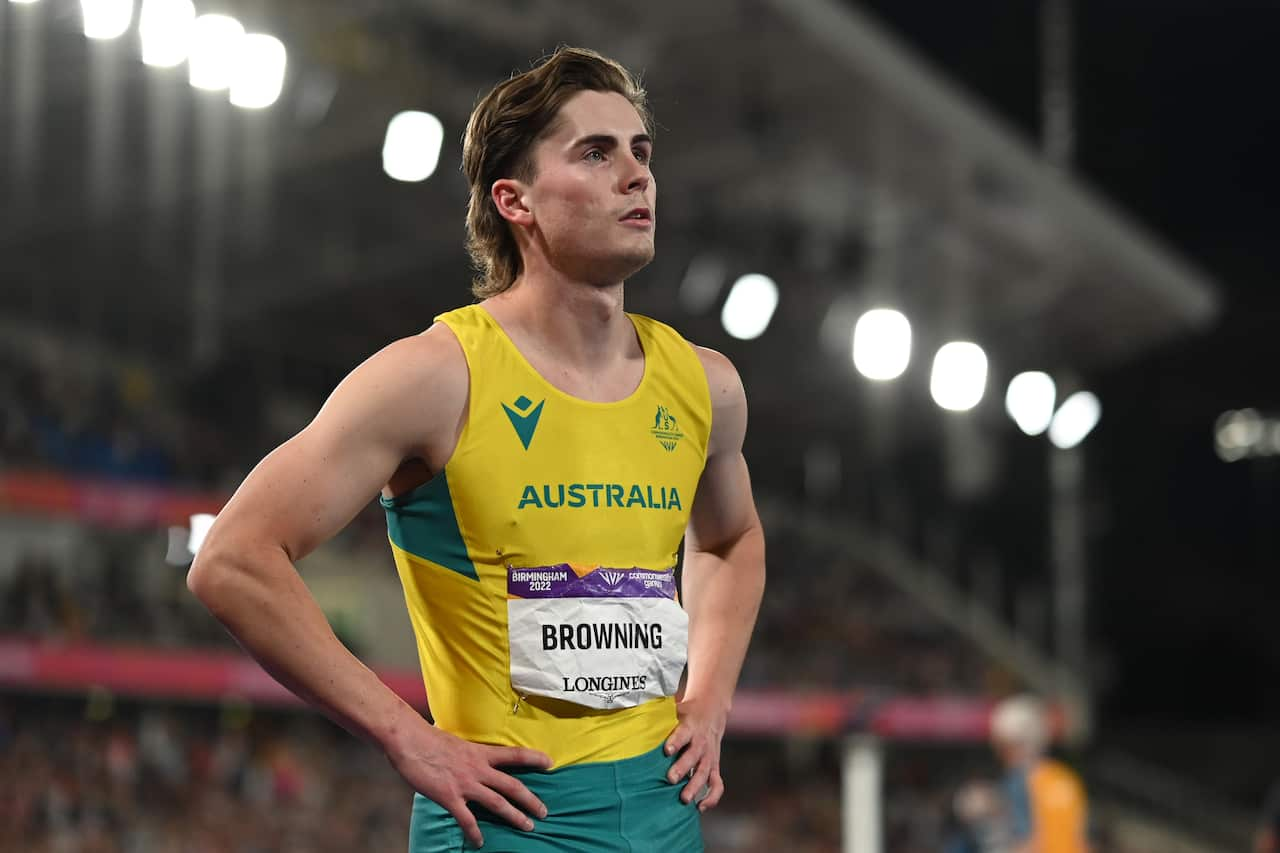Love it or hate it, it's hard to escape the trending hairstyle of the moment: the mullet.
From the football field to school classrooms, the quintessential Australian haircut has made a grand comeback in recent years.
The mullet - hair long at the back while trimmed short on the sides and front - has long been championed by Australian men in the 80s.
But since 2020, it's back and better than ever - and not without good reason.
Queensland-based hairdressers Justine Cobham and Louise Sanders have seen an influx of mullet requests in the past two years.

"We wouldn't go a single day now without doing at least five mullets. It's huge. I've just done two this morning," Ms Cobham told SBS News.
According to the hairdressers, the popularity of the mullet has largely been driven by several Australian sporting athletes who have championed the look.
"Rugby players, whatever they have, over time, really become very predominant and what people ask for and I really think them having hair cuts like that, and that expression makes a lot of people want to give it a go as well," she said.
And one needn't look far to understand where the trending phenomenon is being manifested.
From rugby league's Ryan Papenhuyzen and Josh Papali'i to Aussie Rules stars Bailey Smith and Jack Sinclair, football players have claimed the mullet.

Australian sprinter Rohan Browning took to the world stage at the 2020 Tokyo Olympics proudly claiming the nickname 'The Flying Mullet'.
And more recently, Australian golfing champion Cameron Smith made headlines after taking home the prestigious US Open tournament with a mullet, too.

But these mullets weren't done before cricket great Shane Warne, who rocked the look while wearing the baggy green in 1992 at his Test match debut for Australia.
While many tend to embody the mullet as a hairstyle embedded in the Australian culture, the roots of the mullet name can be traced back to the song 'Mullet Head', released by US hip hop band the Beastie Boys in 1994, according to the Oxford Dictionary.
As sporting stars are a driving force behind the rising trend of the look, there's another "massive push" for mullet growth around the country.
Mullets: a meaningful conversation-starter
Thousands of people across Australia are growing mullets and raising funds for mental health research, ahead of Mullets for Mental Health month in September.
It's the campaign of not-for-profit organisation Black Dog Institute that has been the catalyst for 26,545 mullets (and counting) and has collectively raised almost $10 million since 2020.
Head of Fundraising from Black Dog Institute Evan Jackson told SBS News that mullets are a healthy "conversation-starter", especially following the COVID-19 pandemic worsening people's mental health.
"Mullets for Mental Health is a fun and engaging way to start important mental health conversations and the perfect way to show your mates that you’re all ears for mental health," he said.
One of the participants is 44-year-old Sydney man Ben Abbott, who is taking part with his six-year-old son David.
I think having this haircut which probably doesn't suit me - it definitely suits my son - starts a topic of conversation.Ben Abbott
While young David was initially inspired by the mullet of his favourite NRL player, Penrith Panthers' Nathan Cleary, Mr Abbott thought it was a good opportunity to shed light on mental health problems he tackled in 2018.
"I think having this haircut which probably doesn't suit me - it definitely suits my son - starts a topic of conversation. Some people have never heard of Mullets For Mental Health," he said.
The father-and-son-mullet-duo have already surpassed more than $1,200 in donations to the Black Dog Institute and take weekly shots of their growing mullets for their friends and family online.
"I just thought, this is something I could do, I have the haircut for it ... it's a pretty good feeling, giving something back."
For hairdressers, Ms Cobham and Ms Saunders, Mullets for Mental Health has been the significant reason behind many more mullet requests in recent weeks.
And after losing a friend in 2021 to suicide, they said they feel privileged to facilitate mullets for a special cause.
"Mental health is really important to us, being in a job where men don't often speak out," Ms Cobham said.
"We're really lucky to be able to be a voice about that."

